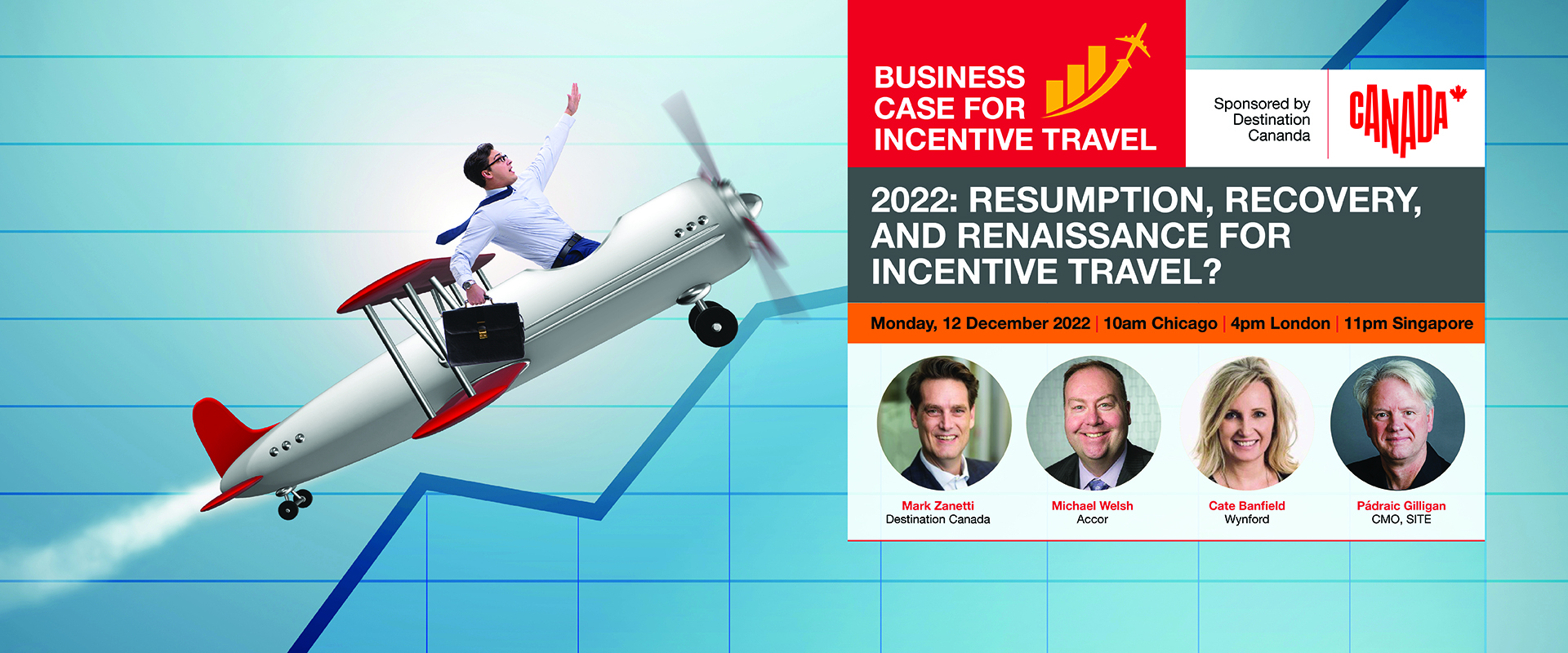Here’s what our panelists had to say about the year, along with their musings on whether we’re now on the cusp of a period of revived and renewed interest in incentive travel.
On recovery:
This was the year of anticipation said Wynford’s Cate Banfield. The floodgates opened and incentive travel came back with a vengeance. This flood turned the year into one of reimagination too, Cate noted, as momentum built over the course of the year.
Cate also described how challenges around compression of space and resources, as well as ongoing questions about the best ways to leverage hybrid and virtual solutions, added new dimensions to incentive travel’s recovery story.
Michael Welsh from Accor agreed, saying their hotel teams have seen strong demand in parts of Asia and that cities there are starting to hum again. Resort destinations in the region are particularly busy, Michael called out, as well as interest in Bangkok, Bali, Jakarta, Seoul, Tokyo, Osaka, and Singapore.
While Accor is focused on welcoming international travelersback, Michael also said there’s interest in people wanting to stay local or domestic, broadening the bases that hotel properties are seeking to attract.
Expanding destination inventories has been another positive recovery trend, observed Destination Canada’s Mark Zanetti. More than ever, groups are sourcing what he described as “rock you to your core” incentive experiences that showcase both the breadth and depth of what’s offer in a destination. Growth continued through 2022 for the DMO, Mark said, with no signs of slowing.
On resumption:
Panelists also picked up on several travel trends that emerged in 2022, confirming much of what’s been written about and researched about incentive travel throughout the year.
It’s about being unique and creative, Mark started off. The changes and disruptions we collectively experienced reshaped travel priorities and preferences, coupled with renewed commitments to ESG metrics and challenges from workforce environment we’d never navigated before.
Cate called out the onslaught of information we’ve enjoyed, saying she feels in some ways like she learned more over the past three years than she did in the previous 20.
Buzzwords standing out for Cate as incentive travel resumed are “experiential events” and “transformational travel.” We remembered just how much incentive travel can be a powerful business driver, Cate explained, which in turn makes her more empowered, dedicated, and passionate about creating experiences that resonated with qualifiers.
An event is no longer a certain set of dates, Cate continued. They’re now opportunities to engage on a continuum, with new approaches to developing deeper year-round strategies connected to incentive travel programs.
Michael also shared, in response to an attendee question, that hotels’ abilities to cater for groups during this resumption period varies by market. Certain destinations, he said, are not experiencing staffing challenges and can run programs largely resembling those in the 2010s. Others though are in regions where staffing has become more challenging, creating cases where tougher business calls will need to be made about theservice levels properties can deliver at different occupancy rates.
Human connection is the ultimate determining factor, Michael said. He pointed to huge increases in onsite activity over the last 7-9 months in different hotel restaurants, bars, and lobbiesas evidence that people are truly eager to meet, talk, and interact face-to-face.
On renaissance:
We are definitely seeing an incentive travel renaissance, says Cate. She reiterated that people are no longer taking travel for granted, which is also causing individuals to realize how much of a driver travel is both personally and professionally.
Travel is a universal connector, Cate stressed; and with an industry that’s focused on promoting and encouraging transformational travel as a motivational tool — that’s an enormous opportunity to spark a renaissance.
Cate, along with Michael, pointed to other positive trends to incorporate into this renaissance period. Cate stressed the importance of tying DEI practices to incentive travel, while Michael focused on specific CSR and sustainability activitiesAccor is offering to help design more holistic incentive experiences.
Mark agreed with his industry peers, reframing the conversation slightly and stating that he views it as a renaissance period springing from a reminder. All of us as incentive professionals, he said, are being constantly reminded of what the true purpose of incentive travel is and how it affects both participants and destinations.
Mark says he’s most excited to see what comes out of chances for us to share and engage with each other as part of incentive experiences, as some of the best ways we’ll be able to add value to a program beyond just the planned incentive itinerary.
Of course, how this renaissance continues to take shape as we reformulate and return to work in a new year also depends on this community.






